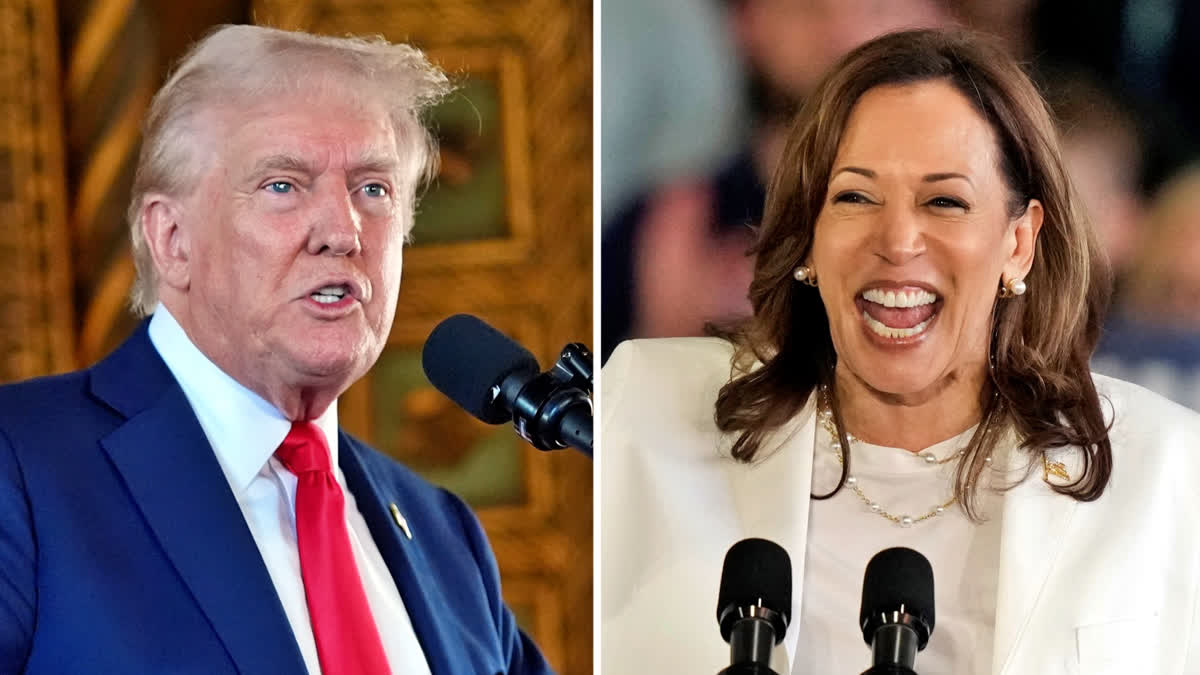With US President Joe Biden handing the baton off to Vice President Kamala Harris as the Democratic Party nominee for the 2024 general election against former President Donald Trump, the Republican nominee, the world's attention turns to America. Who is likely to win?
The only sure answer, of course, is after the results are finally declared after November 5. Until then, the world will watch with bated breath the surveys put out by numerous professional polling organisations, each of which is statistically attempting to estimate which candidate would have the lead if the election were held today.
Polling Explained
The laws of statistics tell us that a sample drawn at perfect random from a population can accurately reflect the behaviour of the entire population. This principle is employed in every human endeavour, from Artificial Intelligence and Machine Learning to health care and manufacturing.
Consider a factory that makes 10,000 bolts an hour. Ideally, every bolt has to be inspected for quality - and that would be very expensive. In truth, the cost of inspection could exceed the cost of production.
Statistical science tells us that if a small sample, say, 1% of the bolts — about 100 bolts — is drawnat complete random, and each one of these passes the inspection, then all 10,000 bolts are likely to be of acceptable quality. If even two bolts within the 100 are found defective, further investigation is necessary. The factory then has to decide whether to throw away the whole 10,000 bolt lot or select good pieces from within, an exceedingly costly proposition either way.
Political Polling
The same principle applies to political polling. But opinion polls, as we saw in the recently concluded general elections in India, can be notoriously unpredictable. Some organisations predicted that the BJP would win upwards of 320 seats in Parliament. When the Election Commission announced the results, the BJP had only won 240 seats, far short of an independent majority.
What went wrong? Perhaps the survey questions to assess the public's mood were confusing. Or the surveys over-sampled one group (too many voters in BJP-leaning states). Or, the surveys emphasised one data collection method over others (calling mobile phones instead of landline calls or online). Or, there were errors when the survey results were interpreted in the context of historical trends (such as the 2019 Modi wave).
If the mistakes between pre-election surveys and election day results are significant, the public could lose faith in polling altogether. That would be a disastrous outcome in a democracy.
Elections In America
Accurate polling in America is incredibly complicated. Polling samples that skew one way could show that Kamala Harris is winning; that skew the other way could show that Trump is winning. There's also the question of registered voters (those in the official voter rolls) against those who are likely to vote - and whom pollsters include in their surveys. For a large democracy, voter participation in America is very low. In 2016, only 55% of all eligible voters went to the polls. In India, in 2024, this number was 66%. When polling data is received, the data is weighted to correct for these factors. Errors in these can impact polling results.
A unique factor in American elections — something that would shock an Indian — is that there is no central authority like the Election Commission to conduct the elections. Elections are a state-by-state matter. America has 50 states, plus the District of Columbia, where Washington is located. Each state has its own rules - for early voting, the length of time a polling station is open on election day, rules for mail-in ballots, voter ID rules, and how votes are counted, tabulated, and reported.
Unlike in India, where the majority party MPs choose the Prime Minister, an American president is directly chosen by voters. And unlike in India, the popular vote - the total number of national votes won by Kamala Harris or Donald Trump matters little. What matters is winning the Electoral College, another unique feature of American elections.
